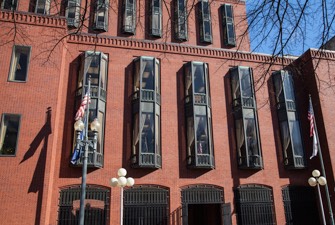 Smith v. Garlock Equipment Co., 2015-1758 is a non-precedential case from the U.S. Court of Appeals for the Federal Circuit that vacated a jury award of damages and a district court injunction because the Federal Circuit indicated that there was no infringement.
Smith v. Garlock Equipment Co., 2015-1758 is a non-precedential case from the U.S. Court of Appeals for the Federal Circuit that vacated a jury award of damages and a district court injunction because the Federal Circuit indicated that there was no infringement.
Without getting too far down into the weeds, what is particularly interesting about this case is that Smith, who had prevailed at the district court and was awarded about $322,500 in damages, thought he could not challenge the correctness of a claim construction made by the district court. Smith contended in a footnote to the Federal Circuit that “[w]hile Plaintiffs disagree with this construction, as the prevailing parties below, they lack standing to appeal the district court’s claim construction order,” citing Novartis Pharmaceuticals Corp. v. Abbott Labs., 375 F.3d 1328, 1339 (Fed. Cir. 2004).
Well, the Federal Circuit held against Smith on appeal, and challenging that claim construction might have ultimately turned the appeal in his favor.
The Federal Circuit noted in a footnote that Smith’s brief conclusion was appealing on its face. Smith had argued in a single line in the brief that the term “shift” should be given its ordinary plain meaning, which the Federal Circuit suggested does seem different than the term “pivot,” which was used by the district court. Unfortunately for Smith, however, the Federal Circuit was unable to address the claim construction argument, Smith having waived the argument on appeal.
The Federal Circuit noted: “We nonetheless do not have occasion to address whether the district court’s claim construction was proper because Smith has failed to present any argument on appeal beyond their single conclusory statement that we ‘should reverse the district court’s claim construction.’”
Now here’s the kicker:
“Smith is also incorrect to assert that Novartis barred Smith from advancing its claim construction arguments on appeal. In Novartis, we held as follows:
“[A] party who prevails on noninfringement has no right to file a ‘conditional’ cross-appeal to introduce new argument or challenge a claim construction, but may simply assert alternative grounds in the record for affirming the judgment. It is only necessary and appropriate to file a cross-appeal when a party seeks to enlarge its own rights under the judgment or to lessen the rights of its adversary under the judgment.”
Novartis, 375 F.3d at 1339. Accordingly, we dismissed as improper the prevailing party’s cross-appeal concerning the claim construction, precisely because that party prevailed before the district court. Thus, while Smith could not have filed a cross appeal in this case concerning the claim construction, Smith could have asserted ‘alternative grounds in the record for affirming the judgment.’ Because Smith did not raise any such alternate grounds on appeal, we cannot address the correctness of the district court’s claim construction [emphasis added].”
Given the Federal Circuit’s hint that they would have at least been skeptical of the district court’s claim construction had the issue been adequately presented to them, and given that the Federal Circuit might have found such an alternative ground for affirming judgment to be determinative, Smith might be grimacing right now at the thought of that six-figure jury award still being his.

![[IPWatchdog Logo]](https://ipwatchdog.com/wp-content/themes/IPWatchdog%20-%202023/assets/images/temp/logo-small@2x.png)

![[Advertisement]](https://ipwatchdog.com/wp-content/uploads/2024/04/Artificial-Intelligence-2024-REPLAY-sidebar-700x500-corrected.jpg)
![[Advertisement]](https://ipwatchdog.com/wp-content/uploads/2024/04/UnitedLex-May-2-2024-sidebar-700x500-1.jpg)
![[Advertisement]](https://ipwatchdog.com/wp-content/uploads/2024/04/Patent-Litigation-Masters-2024-sidebar-700x500-1.jpg)

![[Advertisement]](https://ipwatchdog.com/wp-content/uploads/2021/12/WEBINAR-336-x-280-px.png)
![[Advertisement]](https://ipwatchdog.com/wp-content/uploads/2021/12/2021-Patent-Practice-on-Demand-recorded-Feb-2021-336-x-280.jpg)
![[Advertisement]](https://ipwatchdog.com/wp-content/uploads/2021/12/Ad-4-The-Invent-Patent-System™.png)






Join the Discussion
No comments yet.